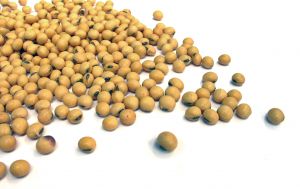 As a long-time vegetarian-turned pescatarian, I’ve always relied on soy as a source of protein. I also like it to add some variety to my diet. When I was a teenager and into twenties, I loved spy-based veggie burgers and other imitation meat products. When I stopped drinking milk, I turned to soy milk. It seems every version of an animal food has a soy alternative. Great news, right!?! Or not. It turns out there’s some controversy over the potential dangers of soy.
As a long-time vegetarian-turned pescatarian, I’ve always relied on soy as a source of protein. I also like it to add some variety to my diet. When I was a teenager and into twenties, I loved spy-based veggie burgers and other imitation meat products. When I stopped drinking milk, I turned to soy milk. It seems every version of an animal food has a soy alternative. Great news, right!?! Or not. It turns out there’s some controversy over the potential dangers of soy.
What Are the Dangers of Soy?
Many years ago, I sat in disbelief listening to a lecture by Dr. Kaayla Daniel. By the end, it had unraveled my dependence on soy as a health food and a practical alternative to meat and dairy. First, many of the soy products we buy in grocery stores are actually processed soy products. As we know, processed foods are by nature unhealthy. Moreover, soy milk contains the synthetic vitamin, D2.
Moreover, the FDA has long made health claims for soy, including its use in the prevention of heart disease. However, some studies show that these claims aren’t always true. Also, soybeans are a cash crop in the US. Like it’s government subsidized and farmed in excess. Other governments have issued warnings against the food. Why hasn’t ours?
The concerns regarding soy go on and on but I’ll summarize it here.
Some of the dangers of soy, include:
- soy is hard to digest
- soy contains phytates which block mineral absorption
- the phytoestrogens in soy are plant hormones — fake hormones that act like real ones and disrupt normal hormone function
- isoflavins in soy interfere with production of estorgen, testosterone and other hormones
Timing of exposure to phytoestrogens is of particular importance and they should especially be avoided during:
- pregnancy
- infancy — this one is sensitive as many babies are given soy formula
- puberty
- reproductive years
- menopause
What’s the Solution?
When I first learned about the dangers of soy I was heartbroken that what I once considered a health food may not actually be one. I continued to read and research and found some good solutions. The good news is that you can eat soy in moderation.
Here’s how:
- Choose the most natural and least-processed forms of soy like tofu and edamame especially when serving soy to children
- Find fermented soy foods like tempeh, miso and natto
- Avoid processed soy like textured soy protein, soy protein isolate and soybean oil
- Opt for non-dairy milk like almond or oat milk instead of soy milk
Ultimately, do your own research and find a balance that feels right for you. While it’s important to tread with caution and know the dangers of soy, I believe that soy can still be a health food.



Leave a Reply